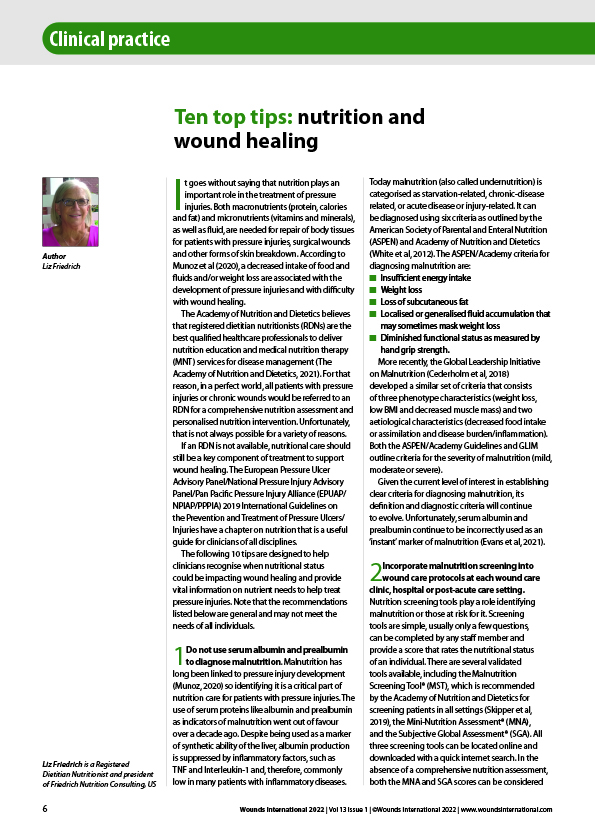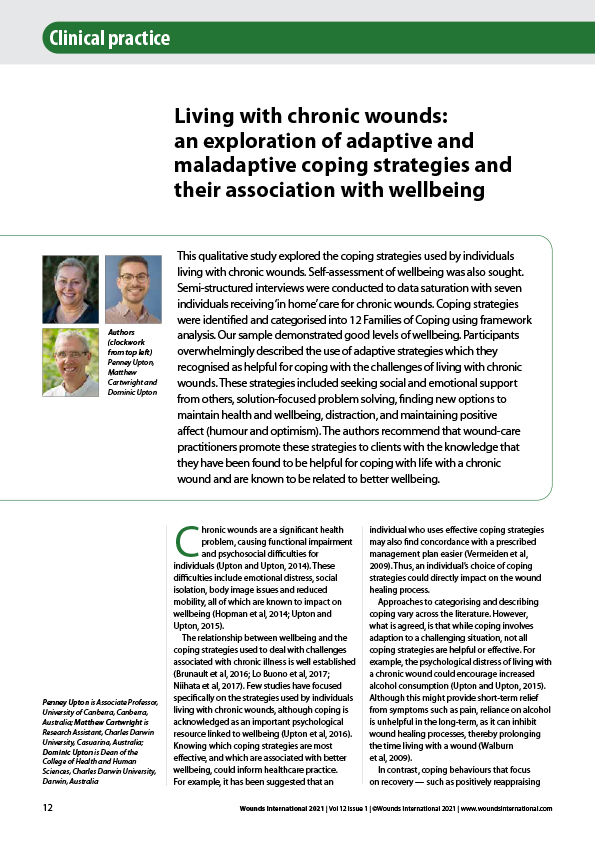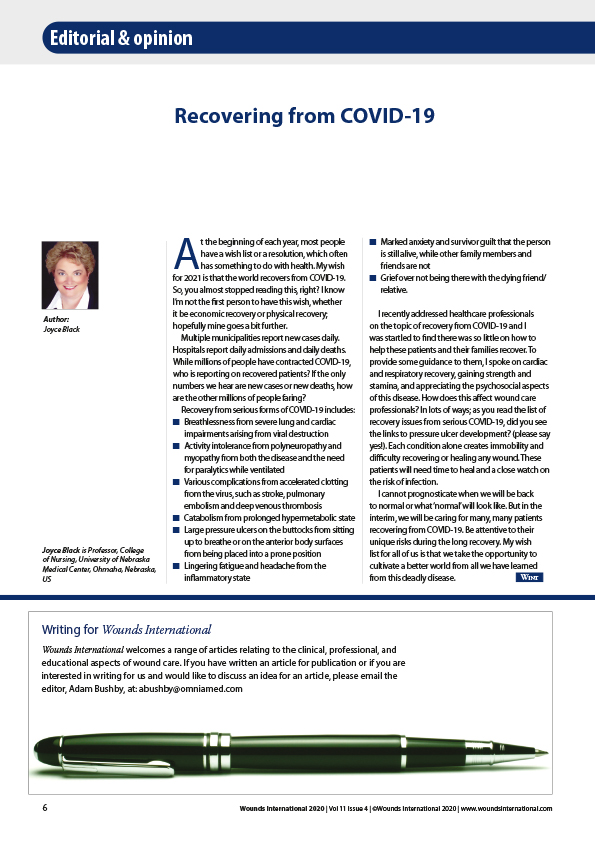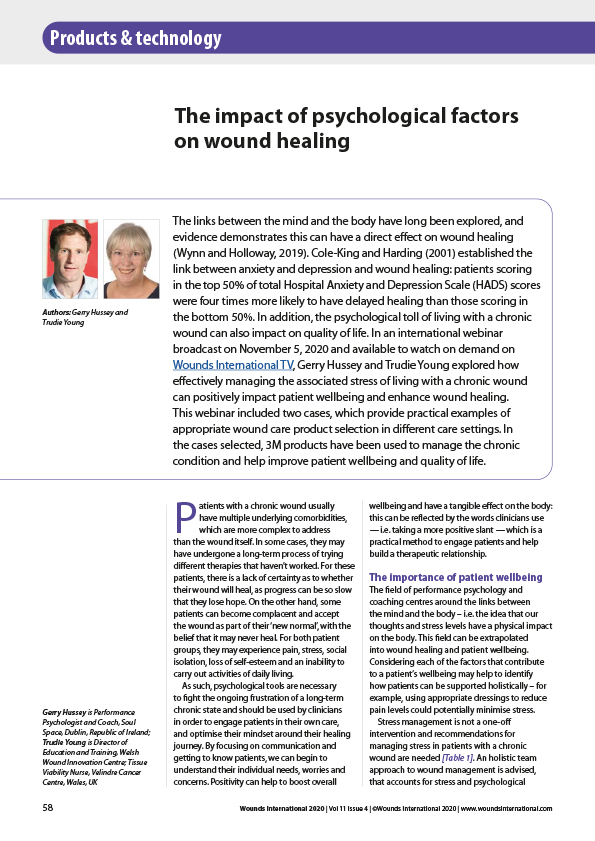Living with a wound can lead to loss of independence or control; all individuals should have the chance to understand their condition, be involved in decisions about treatment and take responsibility for managing their wound where they are able to do so. For this reason, an international group of wound care experts met in May 2015 to discuss the potential ways to empower, engage and support patients living with a wound.
The group acknowledged that to achieve a shift in thinking around patient involvement in wound management, a common, agreed understanding of its impact and its added value with a defined meaning is needed. Discussions centred on the current drivers for policy changes that encourage patient involvement in general and evaluated whether there are different levels of patient involvement, and how these can be best achieved for patients living with a wound. Initiatives that encourage patient self-management and the types of support that people might expect were also discussed alongside the potential Impact patient involvement may have on the delivery of future healthcare services.
The conclusions reached form the basis of this document, which aims to provide best practice statements that offer practical guidance to clinicians to deliver services in a manner that encourages patients to be more involved in their wound care according to their ability, and encourages a meaningful shift in perception to build a deeper understanding of the concept.
EXPERT WORKING GROUP
- Zena Moore (Chair) Professor and Head of School of Nursing and Midwifery, Royal College of Surgeons in Ireland, Dublin, Ireland
- Tania Bell Registered Nurse, Health Team Holdings Corporation, Wound, Ostomy and Foot Care/Lower Leg Clinic, British Columbia, Canada
- Keryln Carville Professor of Primary Healthcare and Community Nursing, Curtin University & Silver Chain, Western Australia
- Caroline Fife Professor of Geriatrics, Baylor College of Medicine; Medical Director, CHI St. Luke’s Wound Clinic, The Woodlands, Texas, USA
- Suzanne Kapp Clinical Nurse Consultant, Austin Health Wound Clinic and The University of Melbourne, Melbourne, Australia
- Klaus Kusterer Professor of Endocrinology, J W Goethe-University, Frankfurt, Germany
- Christine Moffatt Professor of Clinical Nursing Research, University of Nottingham, UK
- Nick Santamaria Professor at Melbourne Health, Nursing Research, University of Melbourne & Royal Melbourne Hospital, Melbourne, VIC, Australia
- Richard Searle Health Economics Manager, Smith & Nephew, UK
EXPERT REVIEW GROUP
- Pat Coutts Wound and Clinical Trials Coordinator, Toronto Regional Wound Healing Clinic, Mississauga, Ontario, Canada
- Sebastian Debus Department of Vascular Medicine, University of Hamburg, Germany
- Kyoichi Matsuzaki Associate Professor, Department of Plastic and Reconstructive Surgery, Kawasaki Municipal Tama Hospital and Department of Plastic and Reconstructive Surgery, St Marianna University School of Medicine, Kawasaki, Japan
Supported by Smith & Nephew





